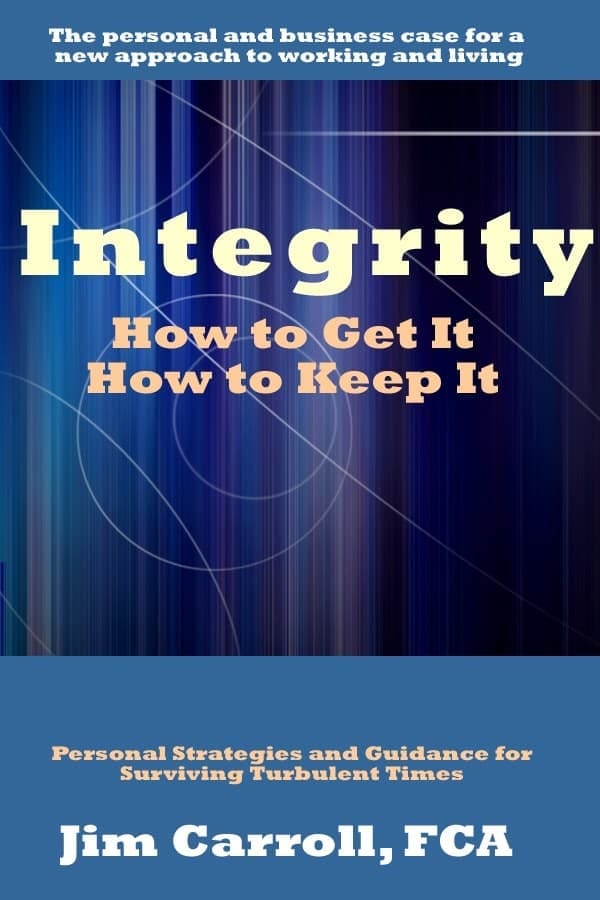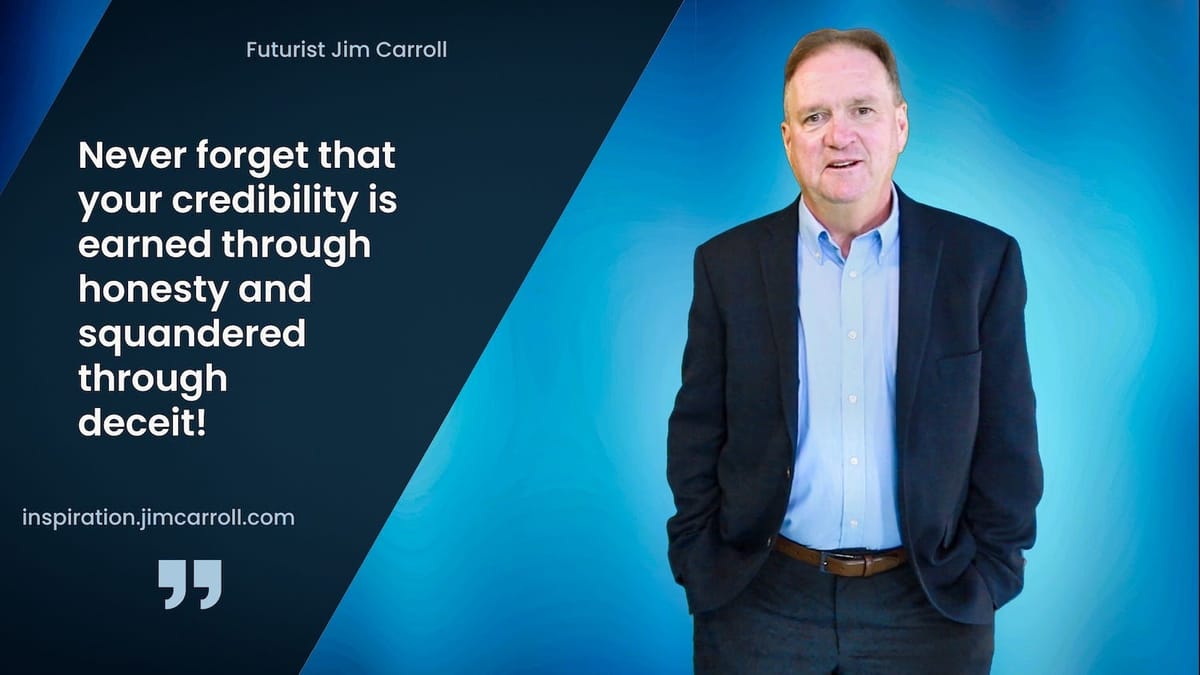Back in the post-Enron days, in 2002, I actually started writing a book, "Integrity: How to Get it, How to Keep It."
I abandoned the project after three chapters because I came to realize that the opportunity to expound on the issue of ethical conduct, while deeply important to me, was not necessarily something that I wanted to chase a career upon. Even so, I put a tremendous amount of work into the project over many months and even commissioned a cover for the book; I had an agreement with Jeffrey Wigand, the Big Tobacco whistleblower featured in the movie The Insider(starring Russell Crowe) agree to write a foreword for the book.

Fast forward as we come to witness a major US institution change the course of history when its actions are in direct contradiction to the previous public statements made by its 'members.' I try not to get involved in politics, but a judiciary lies in the ruins of deceit, legitimacy is destroyed.
I don't want to appear to be sanctimonious, but when deceit becomes acceptable the phrase, 'you've got a bigger problem than you think!' kicks in. In that vein, it's been an interesting exercise for me to read a few of the chapters which I wrote for the draft book back in 2002, where I covered several different angles, such as increasing acceptance of unethical behavior.
In a culture and society in which ethics and integrity is flagging, it should come as no surprise that we are seeing more and more behavior that crosses the line. The more we see go wrong, the more we come to accept it as something that ‘everyone is doing.’ Such an attitude further shapes our beliefs.
Our own ethics become challenged when we live in a society in which we continually witness situations where egregious behavior goes unpunished:
Not only do we see more unethical behavior around us – we see people getting away with it! The ethics of a society and business world will only stay strong if wrongdoers are penalized for their actions. So what type of situation are we in, when a 2001 Hill & Knowlton / Gordon Group Corporate Ethics Survey indicated that they’ve observed that 41% of people saw unethical conduct that has been ignored by their employer? All too often, we see behavior and activities around us that crosses the line, and yet do not see any punitive action undertaken. Over time, that places us in a situation in which it becomes more and more evident that you can “get away with it,” which it itself leads to a lowering of ethical standards.
...or we become immune to the fact that people aren't penalized when they are caught:
We live in a world in which the likelihood of getting caught is low, and not only that, the likelihood of suffering a penalty is even lower if you do get caught! A litigious world. No wonder our moral foundation is under attack.
Part of the problem has to do with an increased focus on “legalities.” It used to be that if you did something wrong, you did something wrong. Now, if you do something wrong, you haven’t really done anything wrong if you can legally prove you didn’t!
....and it becomes a world with continual fine-toothing of unethical behavior:
We live in a litigious society. And the fact is, the world of legalities tends to focus on what is legal, not what is ethical. Often, such a focus results in a situation in which there is a legalistic interpretation of whether someone has done right or wrong.
How bad are things? Even the game of golf is impacted:
The problem is that when something is done so widely, people don’t believe they are doing anything wrong. And maybe a report by Starwood Resorts helps to put this into perspective. As was reported in USA Today, the survey indicated that some 82% of those executives polled admitted to cheating at golf, either by undercounting their strokes, moving their ball, or through other activities on the course that could stretch the rules of what is acceptable.
And yet, even though 82% of them indicated they cheated in golf, 99% indicated in the same survey that they are honest at both golf and business, and that they find cheating to be repugnant: 82% indicate they hate it when others cheat! In other words, they cheat in golf, and yet they think they are honest?
Deceit is a cancer of the soul, an illness of a society gone wrong.
All you can do when surrounded by a world in which it seems that 'anything goes' is to live true to your values, cherish your honesty, and nurture your personal integrity.

